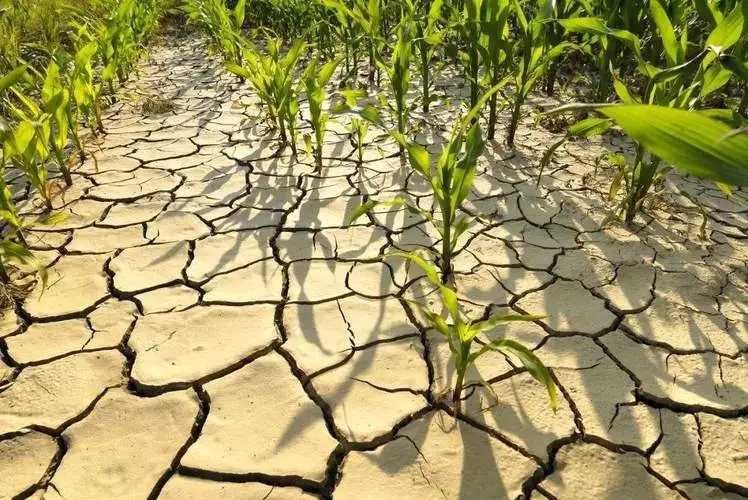

— Blogs —
—Products—
 Consumer hotline +8618073152920
Consumer hotline +8618073152920 WhatsApp:+8615367865107
Address:Room 102, District D, Houhu Industrial Park, Yuelu District, Changsha City, Hunan Province, China
Product knowledge
Time:2024-05-05 19:52:14 Popularity:437
With the development of the Internet of Things and big data technologies, the data collection and analysis capabilities of small weather stations will be further enhanced, and their application in the field of agricultural insurance will become broader and deeper. In addition, as the uncertainty of the impact of climate change on agriculture increases, data from small weather stations will become increasingly important for managing and reducing agricultural risks.

The application of small weather stations in agricultural insurance is promising, and they are becoming increasingly popular with insurers and farmers as technology advances and costs decrease. The following are some of the key application prospects:
1. Risk assessment and pricing:
Small weather stations can provide accurate weather data to help insurers more accurately assess agricultural risk and price accordingly. This means farmers can get insurance rates that are fairer and more reflective of actual risk.
2. Precision agriculture:
Combined with GIS and remote sensing technologies, data from small weather stations can be used to create precision agriculture models that help farmers make more scientific planting and irrigation decisions, thereby increasing yields and reducing losses.

3. Disaster warning and response:
Small weather stations can provide timely weather warnings to help farmers take action before natural disasters (e.g., floods, droughts, frosts, etc.) occur and reduce losses.
4. climate change research:
Long-term collection of meteorological data can help study the impact of climate change on agriculture and provide decision support to insurance companies and farmers.
5. increased transparency of insurance products:
Providing real-time weather data and risk information to farmers can increase the transparency of insurance products and help farmers better understand the coverage and limitations of the insurance products they purchase.
6. Supporting decision-making:
Data from small weather stations can support decision-making by insurance companies and farmers. For example, by analysing weather data, the occurrence of certain crop diseases can be predicted, thus guiding farmers to take preventive measures.
7. Reducing fraud:
Data from small weather stations can be used to verify the authenticity of insurance claims. By comparing meteorological data with damage, insurance companies can reduce fraud and ensure that insurance claims are fair and reasonable.
The specific roles of small weather stations in claims analysis mainly include the following aspects:
1. Data collection: Small weather stations can collect meteorological data in real time from the place where the accident occurred, such as temperature, humidity, wind speed, wind direction and air pressure. These data help to understand the meteorological conditions at the time of the accident and provide a basis for claims analysis.
2. Accident cause analysis: By analysing meteorological data, it is possible to determine whether an accident is related to abnormal meteorological conditions. For example, traffic accidents and damage to buildings may be related to extreme weather such as strong winds and heavy rain. Data from small-scale meteorological stations can help reveal the causes of accidents and provide a basis for claims settlement.
3. Economic loss assessment: Data from small weather stations can help insurance companies assess the economic loss of the place where the accident occurred. For example, in agricultural insurance claims, small weather stations can provide meteorological data during the period of crop damage, which can help judge the degree of crop loss and thus reasonably calculate the amount of compensation.
4. Risk management: Data from small weather stations can help insurance companies identify high-risk areas and improve the efficiency of claims settlement. By analysing the weather data, insurance companies can formulate targeted risk management strategies to reduce the risk of claims.
5. Rapid Claims Settlement: When an accident occurs, small weather stations can provide real-time weather data, which helps insurance companies quickly understand the weather conditions at the accident site and speed up the progress of claims settlement.
6. Scientific decision-making: The data from small weather stations help insurance companies to make scientific decisions. By analysing the meteorological data, insurance companies can understand the distribution pattern and occurrence probability of various meteorological disasters, which can provide a basis for product design and risk assessment.
7. Customer service: small weather stations can provide insurance customers with meteorological information services, improve customers' understanding of meteorological disasters, and help customers take preventive measures to reduce losses.
In conclusion, small weather stations play an important role in claims analysis, which can provide real-time and accurate meteorological data for insurance companies and customers, which can help to reveal the causes of accidents, assess economic losses, and improve the efficiency of claims, thus reducing the risk of claims payment.
Related recommendations
Sensors & Weather Stations Catalog
Agriculture Sensors and Weather Stations Catalog-NiuBoL.pdf
Weather Stations Catalog-NiuBoL.pdf
Related products
 Combined air temperature and relative humidity sensor
Combined air temperature and relative humidity sensor Soil Moisture Temperature sensor for irrigation
Soil Moisture Temperature sensor for irrigation Soil pH sensor RS485 soil Testing instrument soil ph meter for agriculture
Soil pH sensor RS485 soil Testing instrument soil ph meter for agriculture Wind Speed sensor Output Modbus/RS485/Analog/0-5V/4-20mA
Wind Speed sensor Output Modbus/RS485/Analog/0-5V/4-20mA Tipping bucket rain gauge for weather monitoring auto rainfall sensor RS485/Outdoor/stainless steel
Tipping bucket rain gauge for weather monitoring auto rainfall sensor RS485/Outdoor/stainless steel Pyranometer Solar Radiation Sensor 4-20mA/RS485
Pyranometer Solar Radiation Sensor 4-20mA/RS485
Screenshot, WhatsApp to identify the QR code
WhatsApp number:+8615367865107
(Click on WhatsApp to copy and add friends)